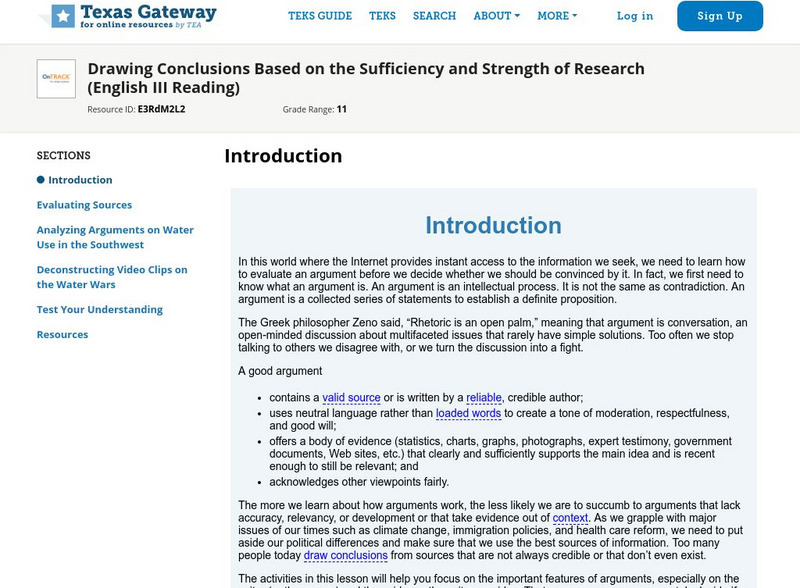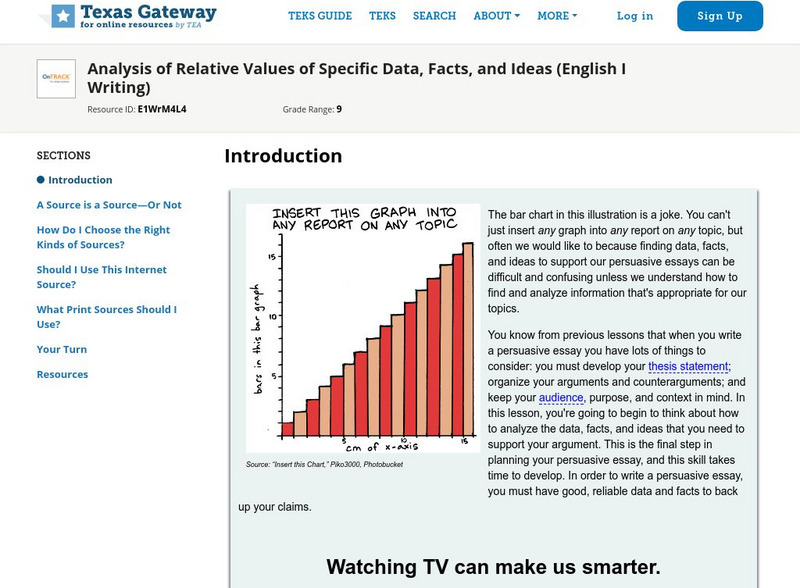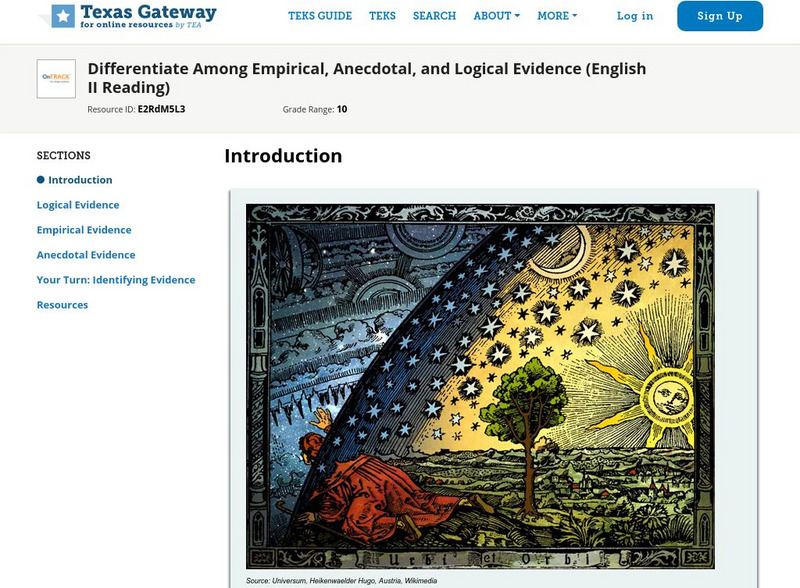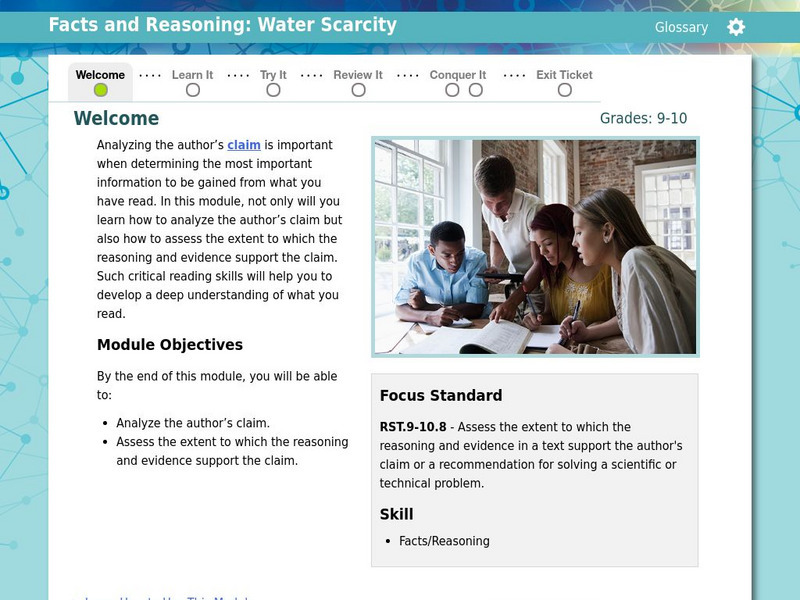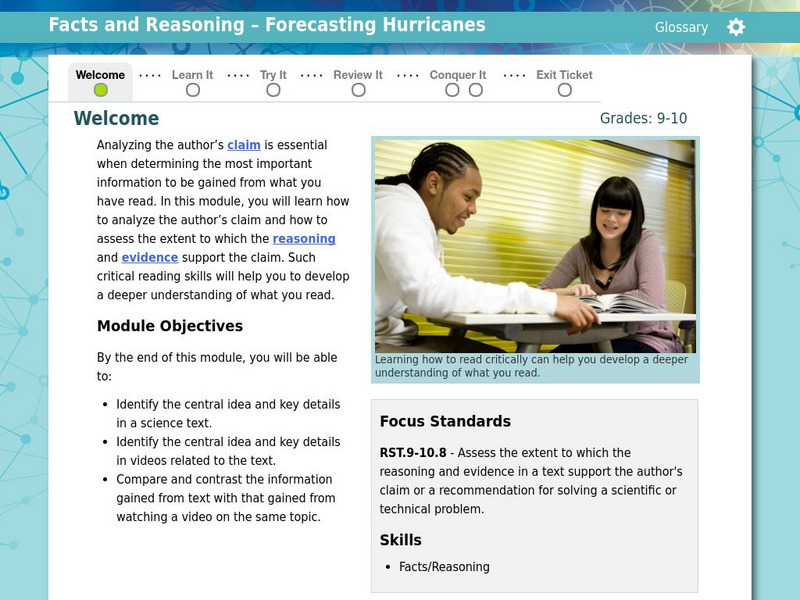Texas Education Agency
Texas Gateway: Drawing Conclusions on the Sufficiency and Strength of Research
The activities in this lesson will help you focus on the important features of arguments, especially on the writer (or the source) and the evidence the writer provides. That way, you can more accurately decide if an argument is valid and...
Texas Education Agency
Texas Gateway: Analysis of Relative Values of Specific Data, Facts, and Ideas
[Accessible by TX Educators. Free Registration/Login Required] This lesson focuses on analyzing and evaluating the value of the sources used for evidence in a research project.
Texas Education Agency
Texas Gateway: Analyze the Relevance, Quality, and Credibility of Evidence
[Accessible by TX Educators. Free Registration/Login Required] In this lesson, students will learn to analyze the quality, relevance, and credibility of evidence used to support an argument.
Texas Education Agency
Texas Gateway: Differentiate Among Empirical, Anecdotal, and Logical Evidence
[Accessible by TX Educators. Free Registration/Login Required] Distinguish among different kinds of evidence in a text that supports conclusions and arguments in texts.
Thinkport Education
Thinkport: Facts and Reasoning: Water Scarcity
In this science-themed literacy lesson about water scarcity, students identify the author's claim and how the author supports this claim with evidence.
Thinkport Education
Thinkport: Facts and Reasoning: Forecasting Hurricanes
In this science-themed literacy lesson about forecasting hurricanes, students identify the author's claim and how the author supports the claim with evidence and reasoning.
Other
Clark County Schools: Rna & Protein Synthesis: Claim, Evidence, Reasoning
This is one lesson in a larger learning module. In it, students investigate the essential question: How does DNA get the genetic message out so proteins can be built?
Other
Learning Design Collaborative: Cer: Claim, Evidence, and Reasoning
Students write a scientific claim that is backed up by evidence and supported by scientific reasoning. Base your answer on your reading of a data table.


